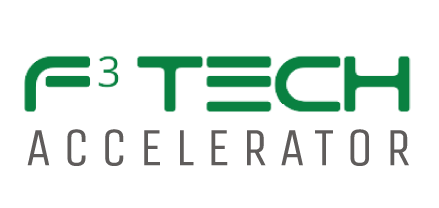Consumers demand for more local foods. The FDA’s Food Safety Modernization Act (FSMA) Produce Safety Rule (PSR) is defining terms of how the produces are grown. The FSMA emphasis on preventing food-borne illness from farm to table. For a safer food supply there need to be a better the food system that handles producing, processing, transporting and preparing foods. With an alarming number of Americans dying from food-borne diseases annually, the FDA is shifting its focus from reactive to preventive, to keep consumers safe. According to FDA statistics about 12 percent annually of all food safety outbreaks are traced to fresh produce, and close to two percent are traced to on-farm practices or conditions.
PSR and Good Agricultural Practices (GAPs)?
Growers should understand the difference between GAPs certification and the PSR. GAPs are a voluntary food safety program driven by buyers’ requirements. The PSR is law. The FSMA’s PSR establishes, science-based minimum standards for the safe growing, harvesting, packing and holding of produces grown for human consumption, that produce growers must adhere to. Unlike the GAP certification, the PSR does not require a food safety plan. Even if a farm is FSMA compliant, a buyer maintaining higher food safety standards will require farms to have a third-party GAPs certification in order to sell to them. Buyers strictly define their requirements, so it is best to identify the buyer and know what their standards.
Who and what is covered under the PSR?
In order to understand the PSR and what parts of the rule apply to a specific farm, it is important to first define if the farm grows covered produce or not. The second step is to determine if the farm may be eligible for a qualified exemption or may not be covered at all. If the farm does not meet the requirements set for qualified exempt farm, it is covered by the PSR.
Financial impact of getting food safety wrong
Growers need to reassess their practices to ensure all their food safety bases are covered and set incremental food safety goals for improvements and documentation. Understandably, producers may consider this a daunting task as they consider the cost of compliance or are overwhelmed by the many aspects of the regulations. They also need to consider the far-reaching effects of a commitment to better safety procedures. Produce safety matters because it directly impacts the health and wellness of their customers. Beyond that, growers have to think about their bottom line and the reputation of their brand. No producer, large or small, can afford the damage to their reputation from a food safety outbreak. As a matter of fact, food safety recalls pose one of the biggest risks to profitability.
Additionally, the money spent on food safety improvements can also lead to less waste of compromised products, and can also help saving from related insurance premiums. Attention to food safety will also help increase consumers’ confidence in the local food system.
Exempt from food safety compliance?
Operations averaging less than $25,000 in produce sales over the last three years are not covered by the rule. However, whether the growers are covered by the PSR or not, it is likely that produce safety will impact their operations through increasing buyer requirements or heightened consumer scrutiny. Many smaller direct markets (farmers markets, schools, restaurants, etc.) are beginning to ask for documentation of food-safety practices. Food-borne illnesses linked to produce, will likely place food safety compliance at the top of buyers’ requirements.
How are we helping?
Tier1Digital’s Farm Management system offered as a cloud-based subscription-based solution provides extensive support for any type of Farmer / Food Processor / Distributor to monitor, asses and comply with food safety compliance requirements. Our software helps in assessing exempt or non-exempt status and organize appropriate filings to support the claim. Whether a farmers market and direct-to-consumer farms that do light processing activities or supplying to a retail store or a distributor, our software helps Industry specific compliance are built into every process to ensure federal and industry specific regulatory mandates are met. Our modules allow you to ease FSMA compliance with streamlined supplier documentation and template workflows to implement corrective actions, support supplier verification and centralize required record keeping.
If you would like to understand how Tier 1 Digital’s SaaS solutions can help transform your agri-business, then simply call our representative nearest to you. We are present around the world.
Connect Us: sriraman@tier1digital.co
India Office: #62/E, 1st Floor, Modi Residency, Millers Road, Benson Town, Bengaluru – 560046
USA Office: 1613 S. Main Street, #107, Milpitas, California, 95035.





